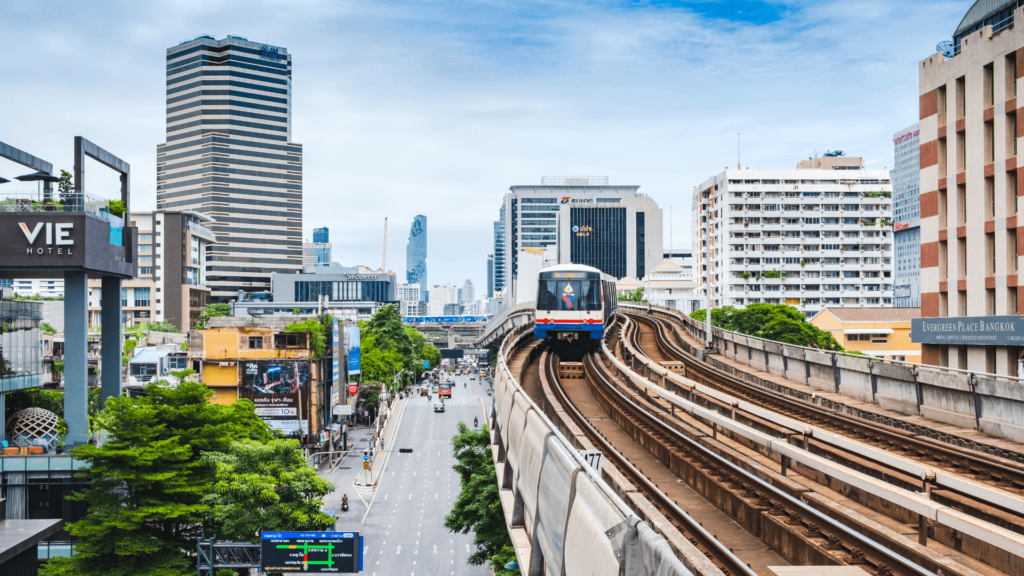Distribution and Ticketing: Critical Assets for Railway Operators
This article by Jérémie Pélerin and Sophie Lombard, SNCF Group, originally appeared in the European Transport Regulation Observer 'Single Digital Booking and Ticketing'
In her political guidelines for the new European Commission mandate, President von der Leyen highlighted the ‘Single Digital Booking and Ticketing initiative’ as a top priority in transport policy. Railway operators support the objective of enhancing international rail ticketing for passengers and they are actively working to improve the customer experience in this area. Distribution is a critical component of railway operators’ business strategy, and as such they absolutely need to maintain control over it.
- Distribution: A Strategic Asset for Railway Operators
Operators’ distribution and ticketing strategies play a significant role in their commercial success, particularly when they provide open-access services. This is crucial to maximise revenue and ensure optimal train occupancy. Therefore, efficient distribution is essential for the profitability of operators’ activities, especially in a competitive context.
Maintaining a direct link with customers is a top priority in operators’ distribution strategies. It enables them to ensure consumer protection and the proper application of passenger rights, and also to accompany travellers on their journeys with accessibility and provide live information on travel disruptions. When working with third-party platforms, it is vital to have two-way data sharing between operators and distributors. This ensures transparency and accountability in the distribution process.
As operators are very well aware of the importance of distribution, they have made significant investments and have been innovating to provide and sell new services, including multimodal solutions. Over the past few years, SNCF Connect & Tech, a subsidiary company of SNCF Voyageurs, has not only developed a very successful online travel agency and platform (SNCF Connect) but has also become a significant actor providing B2B and B2G IT distribution, information and ticketing solutions. The SNCF Connect platform seeks to better meet passengers’ needs, notably by offering end-to-end solutions (including the ability to purchase public transport tickets for over thirty French urban transport networks) and pay-as-you-go options. SNCF Voyageurs, in its role as an operator, has made substantial investments in the digitalisation of its offers, particularly for cross-border journeys, notably by starting to implement the open sales and distribution model (OSDM) standard and to introduce a common digital ticketing format (the Electronic Ticket Control Database, ETCD).
Operators, therefore, play a key role in creating network effects with their platforms and efforts to further digitalise distribution, which also positions them as important players in the digital economy. The significant role they can play in online distribution is an asset for Europe and its sovereignty, not a disadvantage.
For all these reasons, operators must maintain control over their distribution strategies, including their own distribution channels. Requiring operators to unbundle their ticketing platforms would undermine an essential aspect of their business strategies and make them dependent on third-party intermediaries.
- Intermediaries and Third-Party Platforms: A Complementary Role with Limits
The distribution market is already open, competitive and dynamic, and well overseen by national competition authorities. While third-party platforms can certainly play a role in the distribution of rail tickets, particularly when they offer broader international connections or combined services that might otherwise go unsold, clear limits to their involvement should be set.
Railway operators support the SDBT by enhancing international rail ticketing and customer experience. However, direct customer engagement is crucial for consumer protection and real-time travel updates. Collaboration with third-party platforms requires transparent data sharing, but their role is limited as these intermediaries do not contribute equally to railway development. Thus, operators shouldn’t be forced to fund third-party platforms, as high fees can potentially hurt competitiveness and affordability, undermining rail's position against other transport modes.
It is important to note that third-party platforms and operators do not contribute equally to the functioning and development of the European railway system. The price of a train ticket primarily funds investment in infrastructure (rail networks and rolling stock), the workforce and other operational costs (such as electricity), while distribution fees do not contribute to the development of the network and the rail service.
Therefore, the level of distribution fees should remain proportional to the added value provided to the system by third-party platforms. It is not the responsibility of operators to fund the development of third-party platforms, which should seek alternative revenue streams and differentiate their business models. We must avoid a scenario similar to that in the hospitality sector, in which powerful platforms escalate distribution fees and cannibalise the revenue of the businesses they sell. This has empowered these platforms to gain significant market power in the European market as a whole and has sometimes led to abuses of their dominant position.
Distribution fees should remain reasonable, as any increase could be passed on to consumers, negatively affecting the affordability of train tickets. The ticket price remains one of the top factors when consumers book tickets, as is shown by the latest Eurobarometer on rail ticketing. Policies that lead to increased commission would harm the competitiveness of rail compared to other modes of transport.
As detailed above, operators and platforms go along with digitalisation and content aggregation facilitated by new interoperable formats such as OSDM, which enables easier and more efficient selling and cross-selling of tickets, and allows economies of scale for distributors and their tech providers.
Conclusion
Railway operators remain the primary indispensable stakeholders in the railway system and should not be reduced to being mere service providers. Weakening the role of operators in rail ticket distribution should not be an EU policy objective and would be detrimental to passenger rights and passenger information.
Therefore, the principle of contractual freedom must be preserved, and only light-touch additional regulation should be considered in a market already well overseen by competition authorities. Future regulation on ticketing must safeguard the role of operators in the distribution system. They should retain the autonomy to manage their commercial strategies. Furthermore, the level of distribution fees paid to intermediaries should not impede the modal shift to rail and must reflect the genuine added value of their services.
Read the full Policy Brief ‘Single digital booking and ticketing, and multimodal digital mobility services’ for more information.




